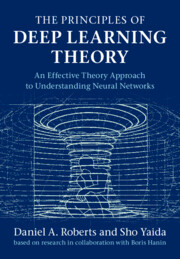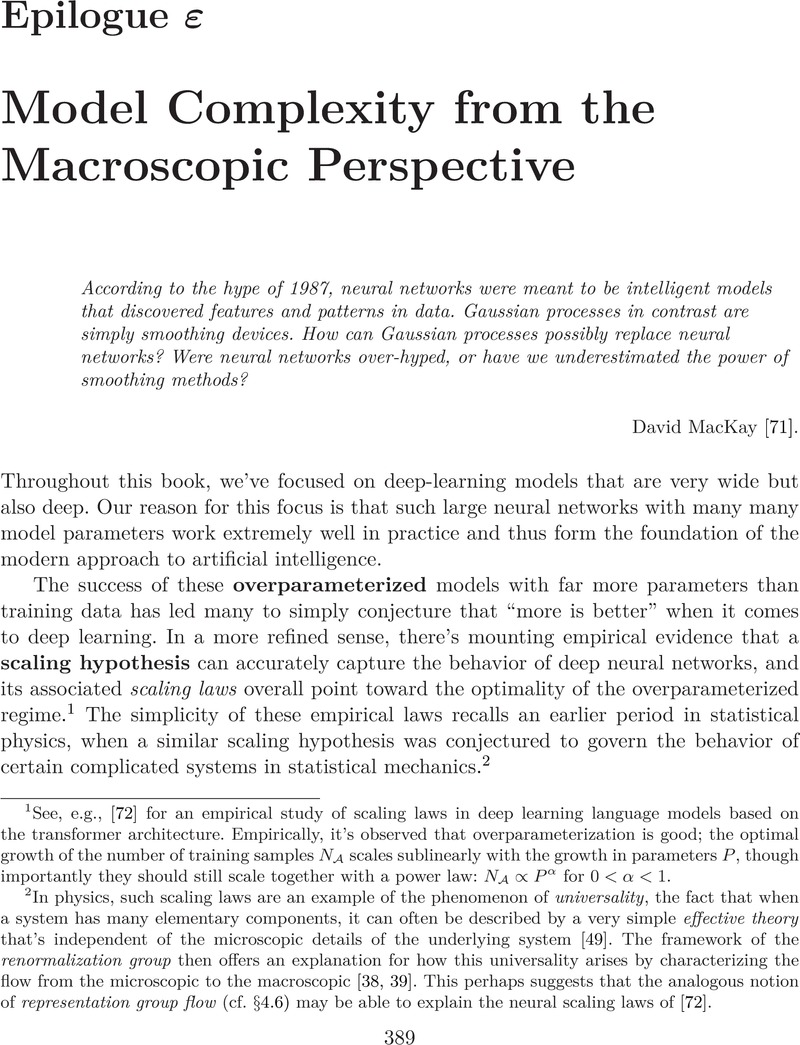 The Principles of Deep Learning Theory
The Principles of Deep Learning Theory Book contents
- Frontmatter
- Contents
- Preface
- 0 Initialization
- 1 Pretraining
- 2 Neural Networks
- 3 Effective Theory of Deep Linear Networks at Initialization
- 4 RG Flow of Preactivations
- 5 Effective Theory of Preactivations at Initialization
- 6 Bayesian Learning
- 7 Gradient-Based Learning
- 8 RG Flow of the Neural Tangent Kernel
- 9 Effective Theory of the NTK at Initialization
- 10 Kernel Learning
- 11 Representation Learning
- ∞ The End of Training
- ε Epilogue: Model Complexity from the Macroscopic Perspective
- A Information in Deep Learning
- B Residual Learning
- References
- Index
ε - Epilogue: Model Complexity from the Macroscopic Perspective
Published online by Cambridge University Press: 05 May 2022
- Frontmatter
- Contents
- Preface
- 0 Initialization
- 1 Pretraining
- 2 Neural Networks
- 3 Effective Theory of Deep Linear Networks at Initialization
- 4 RG Flow of Preactivations
- 5 Effective Theory of Preactivations at Initialization
- 6 Bayesian Learning
- 7 Gradient-Based Learning
- 8 RG Flow of the Neural Tangent Kernel
- 9 Effective Theory of the NTK at Initialization
- 10 Kernel Learning
- 11 Representation Learning
- ∞ The End of Training
- ε Epilogue: Model Complexity from the Macroscopic Perspective
- A Information in Deep Learning
- B Residual Learning
- References
- Index
Summary

- Type
- Chapter
- Information
- The Principles of Deep Learning TheoryAn Effective Theory Approach to Understanding Neural Networks, pp. 389 - 398Publisher: Cambridge University PressPrint publication year: 2022
